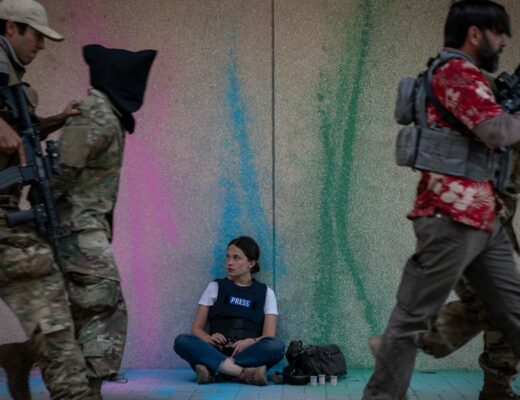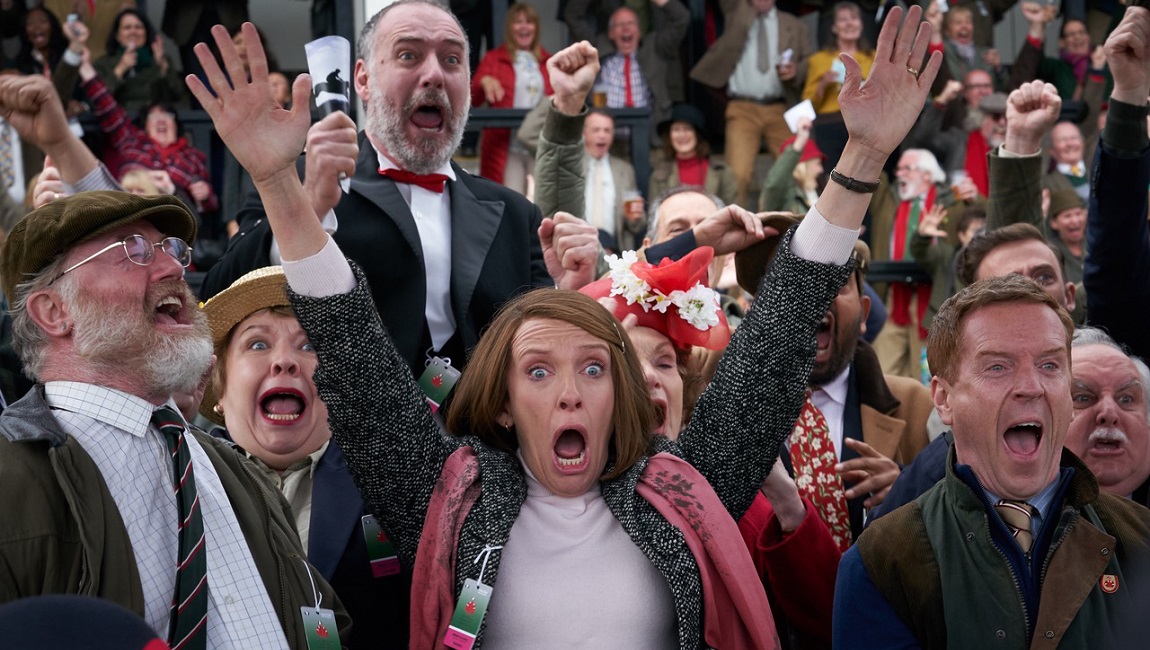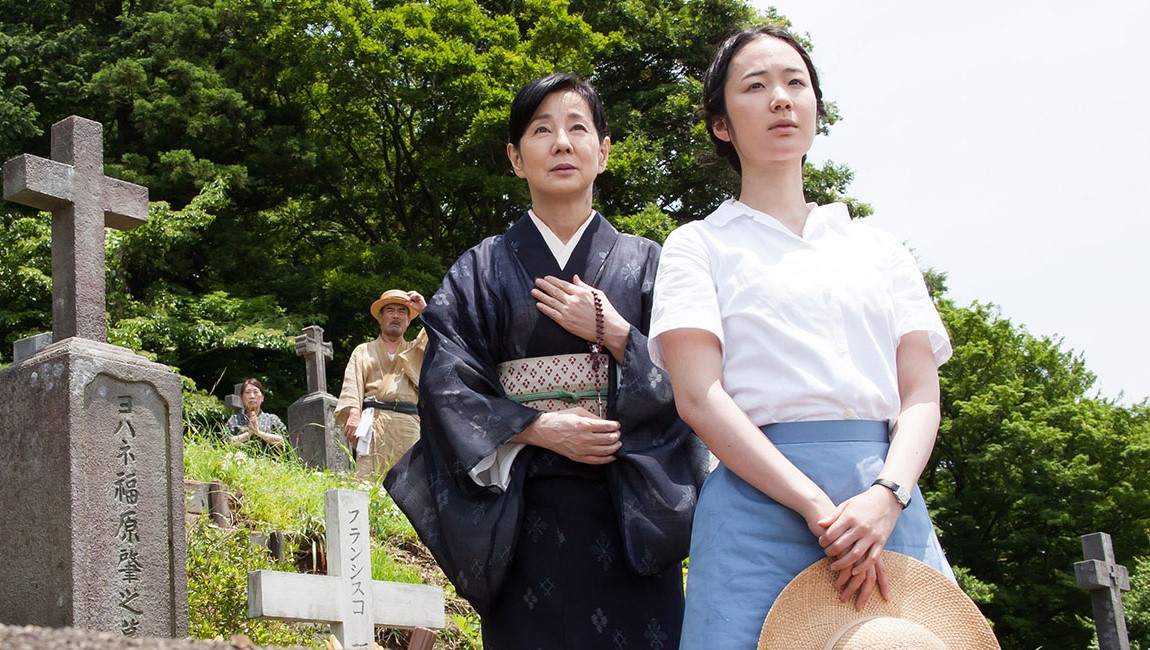Onoda documents how the collapse of one’s worldview can prove as wrenching as any of the violence here depicted, and reminds that cinema is an inescapably physical experience.
Every pronouncement that points to a Second Coming ruptures the human sense of linear temporal experience, pulling one out of the unending succession of days epitomized by Macbeth’s “Tomorrow and tomorrow and tomorrow” speech. In the Pacific War in the Philippines, the most famous such line was General Douglas MacArthur’s “I came through and I shall return,” which no doubt had an altogether different resonance for Japanese forces. Though as we see at the beginning of Arthur Harari’s Onoda, 10,000 Nights in the Jungle, which dramatizes the real-life case of Lieutenant Hiroo Onoda, who remained stationed on Lubang Island in the Philippines for three decades following the end of World War II, the dynamic is a universal one. (It is no doubt the basis of myriad studies in comparative religion.) The first line of the film is a diary entry dated 15th September 1974: “They had said: We’ll come back for you. No matter how long it takes, we will come back.” The voice belongs to wearied, older Onoda (Kanji Tsuda), and “they” presumably refers to his army superiors: the intelligence department under which he trained, particularly Major Yoshimi Taniguchi (Issei Ogata). Over the course of the film’s 165 minutes, we feel, through Onoda’s person, the sheer heft of this promise — as well as the crushing collapse of belief in it.
Indeed, Onoda is in some sense less about the belief itself than about its physical incarnations, the toll it takes on the body. Although we flash back early on to Onoda’s initial recruitment by Taniguchi, Harari does not try to pathologize him. We get a sense of why he was chosen — he was rejected from becoming a pilot because of a fear of heights — but his home life and background are intentionally obscured. His unwavering nationalism is accepted as a dramatic assumption, so the film doesn’t ask “Why?” but “What follows from this?” This focus, like that of so many castaway stories, is thrown onto the needs of survival: the ability of Onoda and his dwindling group of soldiers to face up, both physically and mentally, to each new vicissitude. The film thus works as both a procedural of island life and a kind of parody of the pastoral. The simplicity of life on such an abundant, undisturbed land is mirrored in the forced asceticism and order of a fanatical worldview, which is most starkly rendered in Onoda’s intermittent, but uniformly hostile interactions with the locals. When Onoda and his last-surviving companion Kinshichi Kozuka get a hold of a radio, left by a Japanese group (including Onoda’s father and brother) who try to get them to surrender, the film’s ironic vision becomes even more pronounced: A startling ellipsis shows us Onoda and Kinshichi now aged, having made a nightly ritual of listening to its broadcasts. It becomes, for them, a kind of oracle, portending an end that, in their interpretation, lies always in the future.
Still, Onoda’s watch must end eventually. As the film approaches this endpoint, Harari’s interventions — previously functional, if somewhat anonymous — make themselves felt more acutely. In particular, Onoda’s encounter with a young tourist, Norio Suzuki (Taiga Nakano), who set out in search for the now-(in)famous lieutenant, is a bracing mix of alcohol-fueled logorrhea and stoic silence. And the final collapse of Onoda’s worldview is as wrenching as any of the violence across the film, reminding us that cinema, like any other ritual of belief, is an inescapably physical experience.
Originally published as part of Cannes Film Festival 2021 — Dispatch 7.







